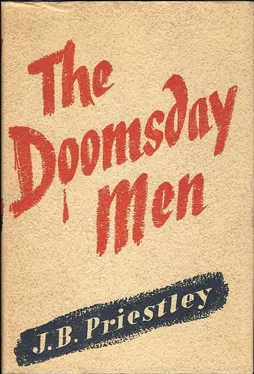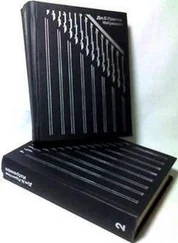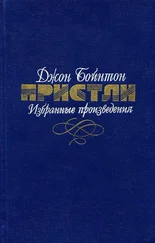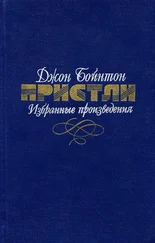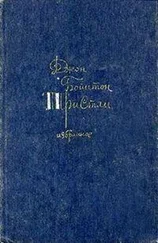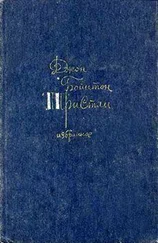“I’m Jimmy Edlin-Phil’s brother-you remember?”
“Sure! Sit down. Glad to see you. Rye or Scotch? Hey, Walter, another rye and a Scotch. Had to come up from Honolulu, hadn’t you? Too bad! And too damned bad about Phil!”
Over the drinks Mr. Drew listened while Jimmy explained his doubts and his determination to know more. Mr. Drew himself had that look which Jimmy had often seen before on the faces of newspaper men of his type, that weary, sceptical, infinitely knowing look of the man who feels that he is perpetually behind the scenes, and nearly always the grubbier parts behind the scenes. And if that look did not produce something valuable, Jimmy made up his mind not to tolerate it very long. He had exchanged drinks and doubts with many Rushy Drews before.
“Well,” Rushy drawled, finally, “I’ll tell you. In the first place, the thing is fairly on the level. They didn’t know who did it, and I don’t believe there’s been any covering up-and, believe me, this is one town where Judas Iscariot could get covered up if he knew the right people-and he would. But Headquarters didn’t know, don’t know now, who did it. They’re supposed to be still working on it, but they’ve too many things to work on-and not work on-right here. The Herald - Telegram played up the gunman-gangster angle for all it was worth, because we’ve been running one of these clean-the-city-of-the-bad-men-from-Brooklyn campaigns, which look so good and don’t spoil anybody’s friendships. On the evidence-you’ve seen the clippings, eh?-it could just as easily have been one of these out-of-town boys as anybody else; so that was the angle they gave it. Our valued representative died at his post, helping to clean up your city-and send the rats back to Brooklyn and New Jersey, see?”
“I see. And you don’t believe it, eh?”
“You bet I don’t. I know it’s all apple-sauce.” Rushy was emphatic, but stopped long enough to order more drinks. “Those boys don’t turn the heat on to a reporter, unless-like that feller in Chicago-he’s been playing round with ’em and then tried to walk out. And they didn’t come here from New York looking for trouble-they just wanted to keep quiet and see what was doing. And Phil had been off that story for weeks, and had never set eyes on any of these gunmen from the East, and didn’t believe there were four of ’em in town. No, sir. All hokum, and of course they know it at Headquarters-but-what the hell!-they’ve too much to do already-and they don’t know where to look-you saw the evidence, and it was all they’d got, believe me-not a thing to go on-so where are you?”
Knowing his man, Jimmy confessed that he wasn’t anywhere, but said he felt sure Rushy Drew, who knew the town and was, into the bargain, Phil’s best pal, would know something.
“You’re damn’ right I do, though it’s not much.” Rushy paused for effect, and was not disappointed. “First, I know-though nobody else-that Phil was on another kind of story. They don’t even know that at the desk, because he used to go round when he’d done his routine stuff and then turn in something juicy of his own. And he didn’t like to talk too much before he’d got something. But he’d tell me now and again, because he knew that I’d been around here even before he had and knew the town backwards and sideways. They’ve built the rotten thing round me while I’ve been sitting here, ordering ryes that taste more and more like rainwater.”
“What was he after, then?” asked Jimmy. “And has it anything to do with the murder?”
“If it hadn’t, then I don’t know what had. You know this town. They talk about the lunatic fringe in these states. Well, here it isn’t a fringe, it’s a solid seam of God-awful lunacy six foot thick and thirty miles long. We’ve more nutty people to the square mile here than anywhere on God’s green earth. Every kind, from Hindu prophets with hair down to their knees to fat women who shave their heads and think they’re Joan of Arc and Mary Queen of Scots. They’re all here. Take any boulevard and in the fourth bungalow on the right they’ll be busy raising the dead or talking things over with Dante and Shakespeare. Two doors farther down, they’re waiting for the new Messiah. Across the boulevard, they’re sitting about in pink robes or starry pants, burning incense until the Grand Panjandrum tells them it’s the Judgment Day. We’ve so many nuts here, they fall so thick and fast, honest to God I haven’t been able to get a good laugh out of ’em for twenty years. It’s just one big loony-bin.”
“And so what?” asked Jimmy, who knew his Los Angeles and could not imagine what was coming.
“I keep clear of ’em,” Rushy continued, in his odd bitter drawl. “I’ll see things soon enough. But Phil had heard one or two rumours, and so he’d started looking into some of these queer new sects we have here, and he was right in the middle of it, up to the very eyes in it, when somebody put him out.”
“Didn’t you tell them that?”
“I told them at the desk, but-what the hell-nobody would believe any harm of these religious birds-and anyway it’s a lousy angle. We don’t want bad boys from Brooklyn here, but we extend the heartiest welcome to all new citizens with a tile loose. L.A. is their New Jerusalem. Come right in, folks, and worship how you please! They pay their taxes and don’t ask too many questions-they’re too busy with the next world to see what’s happening in this one-so walk right in and stay!”
“Yes,” said Jimmy dubiously, “I can see all that, and I know the kind of folks you mean. But I don’t think there’s anything along that line, Rushy. I think you’re clean out there.” And his tone expressed his disappointment.
“Yeah? Well, that’s what I’d have said. But for two things.” Here Rushy paused, deliberately, maddeningly, and coolly relit his cigar and swallowed some rye. “Not two days before he was put out, Phil let something drop to me. He told me he thought he was on to something a whole lot bigger than the usual nutty stuff, and asked me if I’d ever heard of a crowd calling themselves the Brotherhood of the Judgment. I hadn’t, as a matter of fact; they were new to me, but as I said, I’ve given it up. But he said he’d just caught the tail end of a story that would make every front page from here to Cape Cod. He wouldn’t tell me any more. Probably didn’t like the way I laughed and told him I’d heard all that before. That’s one thing.”
“This might be something. What’s the other thing? Come on, Rushy. You’re talking to his brother now. Wasn’t there something about his notebook?”
“His wife told you, did she? He hadn’t it with him that night they let him have the works. Left it at home, which was a bit of luck. I knew he put down things in it. And I was right. There isn’t much-just a few remarks about this Brotherhood of the Judgment-but unless I’m going nuts too-they look like dynamite to me.”
“Rushy,” said Jimmy solemnly, “I have to see that notebook. I’m not playing about. Nobody’s going to get away with murdering my brother without something happening. I don’t know what all this means to you, but it means a hell of a lot to me.”
“Jimmy,” replied the other, in almost the same tone, “I’ll not only let you see the notebook but you can have it. But whatever you’re going to do-and I can’t see you can do much-don’t count me in. No, I’m not afraid-don’t think that-I’d have just as soon gone out when Phil did instead of still sitting here bellyaching. But I’m getting on-I’m tired-and I’ve seen too many queer things happen that nobody could get to the bottom of-they’re always happening in this man’s town-and though I’ll tell you anything I know, or try and find out if I don’t know, I’m not turning detective, not even for Phil’s sake.”
Читать дальше
